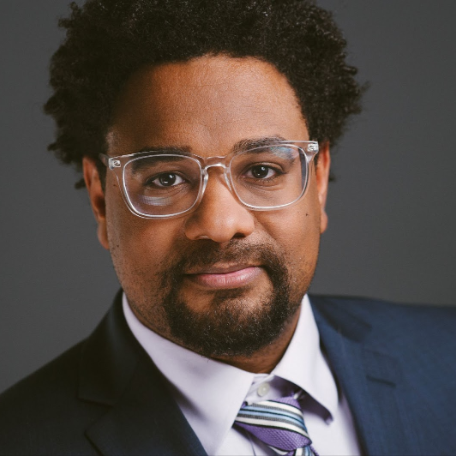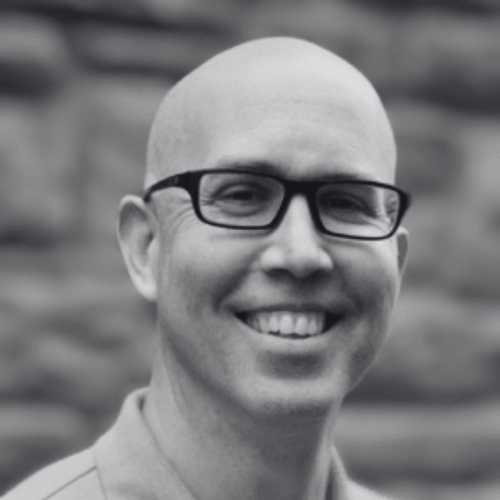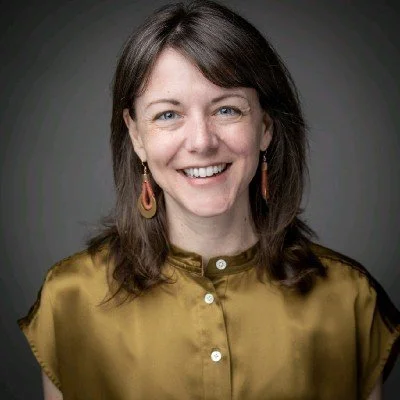New initiatives require a kind of comfort in not knowing the ultimate destination. When we begin a journey with a set destination, we are more apt to miss the more interesting trails along the way. It’s important, maybe more important, to be as curious about where the rest stops are than the destination itself.
Read MoreImagine walking down the main street of your town five years from now. Picture your favorite bakery, the reliable HVAC repair service you’ve used for a decade, the local independent pharmacy where your friend’s daughter works, and the manufacturing plant that employs fifty families. Now, imagine that while the storefronts remain, the businesses you loved are effectively gone. The names might have changed to generic national brands, or perhaps they kept the old sign but gutted the soul of the operation. The staff you knew have been laid off, prices have spiked, and the quality has deteriorated so sharply—frozen pastries, aggressive upselling, and endless wait times—that you no longer want to shop there. The profits that once sponsored the local Little League team are now being siphoned off to a skyscraper in Manhattan, leaving behind a hollowed-out shell of the community you once knew.
Read MoreEarly in my learning, I participated in an impact investing institute held by Mission Investors Exchange (MIE) that helped me to learn what impact investing is and how to get started. While impact investing runs the gamut from below-market rate to market-rate investing, at the MIE institute, I began to understand how foundations can use a portion of their endowment to de-risk and unlock investments from other investors. This “catalytic capital” is defined as investment capital that is patient, risk-tolerant, concessionary and flexible in ways that differ from conventional investment. That ability of foundations to leverage their endowment to spur more investment—and potentially deeper more durable change—really resonated with me.
Read MoreThe U.S. justice system is one of the most expensive and least effective public systems in American life. We spend over $300 billion annually on policing, courts, and corrections. This is more than we invest in public health and higher education combined, yet recidivism and incarceration rates remain among the highest in the world. But what if we applied the tools of innovation, including technology, data, and design thinking, to shift that dynamic? That is the promise of Justice Tech: ventures that prevent incarceration, reduce harm for those inside the system, and create real pathways for returning citizens to thrive. It is a new category, one that sits at the intersection of impact and infrastructure, where justice reform meets venture capital. Just as we have seen climate, education, and finance technologies reshape legacy systems, Justice Tech is reaching its inflection point. The only question is whether we will meet it with the imagination and the capital it deserves.
Read MoreIn the world of venture capital and angel investing, the familiar story often focuses on financial gains: the hunt for huge profits, the next unicorn, and the growth of personal wealth. Laura Kind McKenna’s approach is different. Her recent investment in Naturaz, a growing company founded by Mumbi Dunjwa and based just outside Philadelphia, is motivated by a deeper, community-focused purpose: the urgent need to direct capital to entrepreneurs who need it most and, in the process, create a stronger, fairer local economy.
Read MoreCatalytic capital is intended to be first-mover, flexible funding — filling market gaps and taking on higher risk and/or concessionary returns to unlock impact otherwise unattainable. The problem? VC structures prioritize high-risk, high-reward growth — an ill fit for many mission-driven startups tackling systemic challenges like climate change, health access, financial inclusion, and social inequality. Learn about their shifting solutions within impact investment models.
Read MoreThe Private Capital & Tech Accountability Working Group brings a diverse range of tools, from investigative research and investor education to advocacy, human rights monitoring, and advisory support for tech companies and investors. The working group’s goal is to bridge the accountability gap at the intersection of technology, finance, and human rights—an area still underserved but increasingly critical. By aligning our complementary expertise, the working group is helping to shape a more responsible investment landscape in tech.
Read MoreThe Independence Public Media Foundation (IPMF) is a six-year-old private foundation with an unorthodox origin story. IPMF emerged from WYBE, a small public television station in Philadelphia that relinquished its broadcast license. IPMF went on to manage $131 million, with a liberatory perspective, shifting away from the traditional philanthropy model. In recognizing the role that historic wealth extraction and associated accumulation, as well as racism, have played in amassing the amount of assets controlled by philanthropic organizations. IPMF strives to dismantle these systems entrenched in philanthropy through grantmaking, investing, and business operations, starting with a trust-based local bank.
Read MoreLooking back at a half-century of the Central Philadelphia Friends Meeting’s (CPFM) endowment, as they found a method for stewarding alignment between their financial resources and their faith. Over many years, these Quaker meetings have been in the process of hearing diverse opinions together on what they stood for and views on the right use of the endowment money. Recently, the CPFM Financial Advisory Committee added impact investing into their language, which allowed the members to arrive with a readiness to receive a proposal and to move their asset portfolio to align with their members’ values.
Read MoreCulture is seen as meaningful dynamics of a community — connections and relationships, rituals and traditions, languages, and well-being. The assets that communities value, yet are often not seen, understood, or mapped in the traditional investment equation, causes enormous underinvestment in culture. The concept of investing in culture and in artists themselves as central articulations of our neighborhoods and communities is a critical piece in transforming a “missing market” to invest in. What if investors saw the worth of artists as key actors in building new markets for community-led climate and health solutions?
Read MoreThe creation of financial centers in Philadelphia that will blend the services of a nonprofit loan fund with a consumer-focused credit union, creating a continuum of financial services and access to capital for every need. Finanta Credit Union focuses on creating pathways for the underbanked to enter the financial mainstream, now opening in North Philadelphia with a full suite of established and tested products.
Read MoreBarriers to home ownership and property retention have led to vast gaps in wealth, education, and health outcomes in Black and Brown communities. The Growth Collective focuses on real estate assets in divested communities across Philadelphia to create development plans that establish the land and property as valuable impact assets that anchor neighborhoods and accrue to the benefit of long-term residents. Learn about holistic solutions for investing in safer, cleaner, and greener neighborhoods.
Read MoreInstitutional food has massive economic, health, and equity opportunities. To envision a centralized meal production facility in Philadelphia that pairs with a workforce development program and values-based food-sourcing practices will build a resilient regional food system that feeds Philadelphia’s future.
Read MoreAttending the Total Impact Summit ‘24, the leader of Transform Finance shines a light on the tensions simmering while navigating the primary topics of the conference. This article lifts a lens on what he sees as primary methods for change at the Summit — the high density of individuals, family offices, and small foundations that are types of asset owners with the most flexible and nimble ability to make changes to their approach for impact investing.
Read MoreSustainVC believes that their strategy not only benefits cities with a smaller VC presence, but it also paves the way for more venture investors and entrepreneurs to achieve success, which can be a flywheel for further economic growth in hub regions.
Read MoreWhether you care about the vitality of America’s small business economy, the resilience of our manufacturing supply chains, local business ownership, or structural inequality—employee ownership (EO) is an impact investment thesis that offers over-indexed impact returns.
Read MoreWe need to educate people – individuals, neighborhoods, all types of organizations, philanthropists, politicians, legislators – on the capacity and opportunity that the arts provide, as well as the influence the arts have on the world around us. The arts can be used to support many of the development and equity challenges we face today. How do we lift leadership that recognizes, and rewards, the value of arts and culture in contributing to vibrant, thriving communities.
Read MoreAs counsel for many socially-conscious businesses, perhaps the most frequent early-stage question fielded from entrepreneurs is whether they should organize their business as a traditional business entity or as one of the newer, alternative entities that many socially responsible businesses are increasingly using in recent years. While there is no one right answer to this question, Royer Cooper Cohen Braunfeld attorneys in the Corporate & Business Group weigh in with some key considerations that should help entrepreneurs decide on how they want to proceed.
Read MoreEarlier this year, a significant milestone was achieved for NeedsList—founders successfully exited to a values-aligned company that shares their values and is committed to scaling the companies impact. As the Founders of NeedsList shared this news with networks, they were struck by the number of impact founders asking us for advice and to share the journey. With so few resources and case studies available to impact entrepreneurs, NeedsList hopes that their story can shed some light on what was learned.
Read MoreThe circular economy reimagines our economy as a continuous loop where products are designed for maximum reuse. When those products end their lifespan, the resources that comprise them are recovered and reintroduced into the broader system. The circular economy answers the question of how we can create the highest quality of life for most people without destroying the planet in the process.
Read More




















